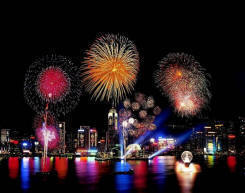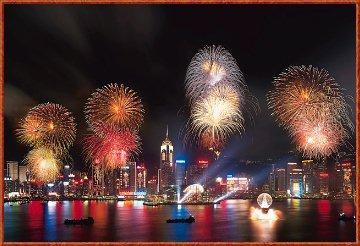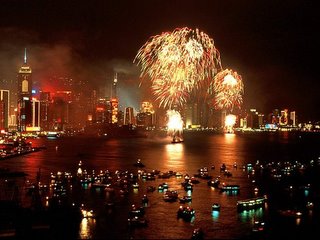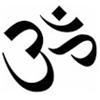Hyphenation
I am the child of Chinese immigrants. I am caught at the crossroads of being loyal to my heritage and being fluent in my nationality. I seek approval from both sides of the hyphen. I speak an accented Cantonese, but I speak it with love. I am only a visitor in Hong Kong, a stranger to China; its history, however, is rooted deeply in my person. At home, I follow the customs of my parents - my Mama and Baba. The dishwasher employed for Tupperware storage, the cupboard full of chopsticks, the packages of black fungus, dried bean curd, grains of red bean, the twenty pound tub of white rice; these are customs that prevent me from being fully Canadian. I speak English with passion. It is the language that I can manipulate. It is the language where each word is used to its fullest potential. I speak English without an accent and with a comprehension that my parents will never realise. They will never appreciate the world of books, music and films that have helped craft part of my identity. Canada is my home, but I am not Canadian. I am Chinese Canadian.
Growing up, I took every lesson imaginable: skating, ballet, piano, math, gymnastics, Chinese and French. My parents were determined to have a prodigy who they can compare with their friends’ children. When my friends would talk about the fun things they did during the weekend, the only stories I would have to tell would be about sitting in extra math classes and Mandarin lessons on Saturday and Sunday mornings. All the games I played involved learning. Carmen Sandiego taught me geography, Midnight Rescue and Number Munchers taught me basic arithmetic. All these games, if broken down to its root was based on academics. I'm not certain if I have ever received praise from my parents. All I remember is being told to do better. They would show me articles of kids that have reached University level courses at the age of 10 or won a grand prize playing piano. They told me that if I worked harder, I could be one of those kids. I resented those children and always complained that they compared me with people who were far too extraordinary – this frustrated them, because, why would you want to be compared with mediocrity? You compare yourself with the best.
One year, I was cast in the school play as the Chinese shopkeeper. I only had one line, and every time I said it, people laughed. As a child, I thought that the laughter revealed how much the audience liked me; with every delivery, my pronouncement became more dramatic and exaggerated. With impatience, the night came that my Mama and Baba would be in the audience. Finally, it was time for the Chinese Shopkeeper to come out of her store. I walked onto the stage, with a bag full of rice. I looked out at the audience and in a loud, Chinese accent not unlike my Mama’s, I proclaimed, “Lice! Lice for everyone!” while scattering the rice grains onto the stage. As predicted, the audience erupted in laughter and I eagerly looked into the audience for my parents. The spotlights blinded me from seeing their true expressions so I imagined that they joined in on the laughter while bragging to their neighbours that the girl onstage was their daughter. After the play ended, I clambered into the backseat of our car and waited for the praise that I would never receive. It was not until years later that I finally understood the deep disrespect that I had displayed not only to them, but also to myself. My parents came to Canada with the same story as every immigrant: nothing in their pockets but the hopes and expectations of a happy and prosperous future. They learned to speak basic English, their third language, in a matter of months. My Baba went to University and earned an Engineering degree along with an MBA. After years of hard work, my Mama became the owner of a successful restaurant business. Yet, despite all of their academic and professional success, they became caricatures and the punch line of their eight year olds school play.
My relationship with the term “Chinese-Canadian” has never been constant. The source of conflict for me is the hyphen. I am neither fully Chinese nor Canadian. Mama never lets me forget that even though we may live among ghosts, we are different from them. We may not necessarily be better, but we are different. “Ghost” is the literal translation for Caucasian people. The term ghost was not originally used to describe the transparency of their skin. For the Chinese, these strangers were so different in appearance and manner during their first encounter that they were frightening. The abnormal. The supernatural. Just like ghosts. To my parents, I may be born in Canada, but I will never be entirely Canadian. I will never be a ghost. “You are Chinese,” Mama says. “You can try and pretend to be a ghost, you can fake it. But as long as you are my daughter, you will never succeed.” I feel doomed by this pronouncement. In spite of the extracurricular math lessons that I was forced to take to be ahead of my class, I thought one plus one equaled zero. My two identities cancelled each other out.
I make the mistake of bringing a girlfriend with me to Chinatown. She is appalled by the fully skinned chickens, ducks and pigs that are hanging in the window display. She criticises the distinct smell of the Supermarket. The mixture of roasted meats, wok fried vegetables and tubs of fresh intestine, colon, stomach lining, kidney, liver, pancreas and pig snouts create the initial smell of sewage. To me, it is familiar. All I can smell is food. She does not understand the Chinese folkways and she becomes increasingly judgmental of her surroundings. What she does not realise is that her negativity towards these customs are also directed at me. I wander through separate aisles alone, feeling solidarity with the rest of the Chinese shoppers. I feel like a foreigner with my friend. Later, sitting in the middle of a bustling tea cottage in the heart of Chinatown, we are the only ones speaking English. I order in Chinese, but I trip over a word that I do not recognise in the menu. When my order comes, beside my bowl, the server sets down a fork.
At my cousin’s bridal shower, I feel a sense of camaraderie with a group of strangers that I have never experienced with friends. We are all Chinese Canadians. They understand the constant desire to please our parents. We sacrifice some of ourselves for their pride and their approval. A sacrifice that is foreign to many ghosts. We have double amount the pressure. We feel the high expectations from the parents, and scrutiny and judgment from ghosts who will never understand this different form of respect. We have formed, temporarily, a haven for ourselves. We are hidden away from the ghost friends who flippantly comment, “I’m so glad I’m not Chinese.” We are safe from the constant nagging of our mothers. We laugh at the punishment of Asian parents that can be defined in Western society as child abuse. We have been locked out of our house at the age of 5, bullied by a vacuum hose, attacked by a flying slipper, and threatened to be taken away by the Chinese mythology Gods and trapped in their water jug. We all agree that Asian mothers have an unparalleled talent for guilt tripping us into doing their bidding. We all possess the same fractured identity. We understand our heterogeneity in a homogeneous culture. Long ago, I thought my identities cancelled each other out. I understand now that one plus one does in fact equal two. Before, I did not know if I were either. Now, I understand that I am both.
Edward Said says, “A part of something is for the foreseeable future going to be better than all of it. Fragments over wholes. To do as others do, but somehow to stand apart. To tell your story in pieces, as it is (After the Last Sky, 150).” While I am walking down the busy downtown streets, I overhear dozens of voices chatter in their different languages. The hyphen is not a subtraction, but a connection. An invisible hyphen exists beside the term “Canadian.” This new identity is not the third space, but an infinite one. The distance that exists between the numbers one and two are unending; the hyphen exists within those infinite numbers of decimal spaces. It can never be firmly defined as a whole. The dash is the unseen part of the Canadian. It is defined in its dual meanings -- as something joined, and something which must always be separate. The dozens of voices that I heard were only the ambassadors for millions of voices that live within the undefined space with me. We move together, connected, in the footsteps of our narrative
 I was not born in Hong Kong, but I maintain an intimate relationship with its culture and a love for the city. You will never see fireworks more beautiful.
I was not born in Hong Kong, but I maintain an intimate relationship with its culture and a love for the city. You will never see fireworks more beautiful. 




